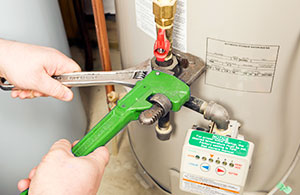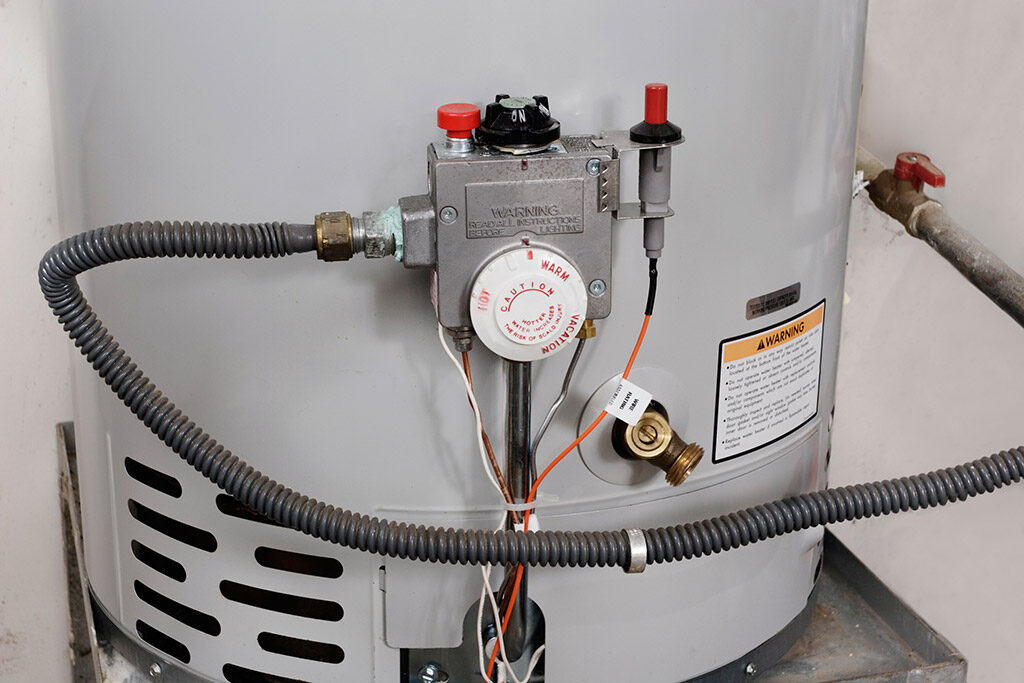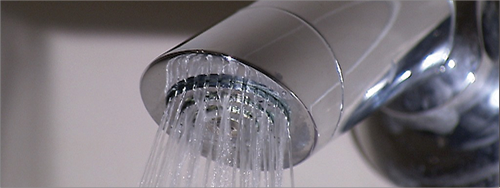5 Star Water Heater Install
That same morning, I got a phone call from someone (I wish I remembered his name, but I didn’t because I was in a bad mood) who told me I could be scheduled for a 3-7 window but would call if anything sooner could open up. Looking back, he was very respectful and handled the scheduling quickly and professionally. It’s a shame I couldn’t credit his good service as well
A little after noon, the dispatch guy whose name I forgot, calls and says they can fit me in within the hour, so I go home and wait less than an hour for Jonathan to show up with my water heater. Because they often work for 10+ years without maintenance or incident, water heaters are overlooked. I knew nothing about the maintenance and never bothered to look into taking care of it.
my prodding questions, took time to assess how he was going to get the job done, and he did it despite my pestering. His soldering wasn’t pretty, but he tested it for leakage right in front of me and he worked around specific building needs while doing so

Is it time to replace your hot water heater? Don’t ignore these warning signs
Like your furnace or air conditioning system, your hot water heater gets less efficient and is more prone to problems the older it is. If you notice any of the following warning signs, it’s a good indicator that it might be time to consider getting yours replaced
Over the counter chemicals
Unusual and new noises, like banging and knocking, are strong signs that the heater is ready for replacement.
Does it feel like you’re waiting longer and longer for water to get warm in faucets throughout the house? This is a big sign that your heater is old and incapable of doing its job efficiently.
If water or utility bills are rising, it’s normally a major sign that your heater is getting old. On average, 10 years is the typical life span of most hot water heaters. However, heaters powered by electricity tend to last a little longer than those powered by natural gas.
Hot water looking rusty when running from your faucets can telegraph hot water tank issues. Cold water looking rusty is usually a different issue, more likely with your home’s water pipe system.
If you’ve had to have your heater repaired more than twice in the past two years or if you’ve had it repaired after any of the above warning signs and you are still having problems, it’s smart to spend any more money on replacing your hot water heater vs wasting money on any further repairs.
Troubleshooting with your hot water heater.
If your hot water heater is anywhere from a year to about 10 years old and there are some minor problems, you might be able to help by troubleshooting using the following tips before calling in the professionals for any repairs
Electric water heaters
Always check the break panel first to determine if a breaker hasn’t tripped or if a fuse hasn’t blown.
Check to ensure that the thermostat hasn’t been lowered accidentally.
Natural gas water heaters
Check to make sure the thermostat is set correctly.
If water isn’t heating, there may be an issue with the pilot light which should ALWAYS be worked on by a professional.

HERE ARE HELPFUL TIPS TO MAINTAIN YOUR WATER HEATER AND EXTEND ITS LIFE | WATER HEATER REPAIR
A water heater is an appliance that is essential to people living not only in cold climates but also those living in temperate ones. Heated water is needed for warm baths, washing dishes, washing your own clothes as well as for cleaning different parts of the home. However, water heaters, like any appliance in the home, need maintenance from time to time. This is why water heater repair is so important.
Manufacturer Recommendations
Check the manufacturer recommendations when you get the water heater. It’s often the case that they give you specific recommendations in order to operate the heater the right way. Before performing any maintenance on the appliance, it may be pertinent to check whether there are any instructions for water heater repair
Installation Date
Also, note the installation date of the water heater. The expected lifespan of any water heater is nearly 10 to 13 years. If the water heater gives out before that, either the makers are responsible for a subpar build or you’ve neglected your duties as an owner.
Test Temperature and Pressure Valves
The temperature and pressure valves are there for safety’s sake. They measure the two variables inside the water heater so that they can release hot water from the heater in case it gets too hot or if too much pressure builds up inside. If this is not done, then the heater can sustain irreparable damage.
Lower Temperature
A lot of water heaters are set by default at over 130 F. Many professionals in plumbing repair suggest that you choose a setting of 115-120 F instead. This can reduce your electric bill by as much as 6% as well as stop your water heater from overheating, thus extending its lifespan.
Flush the Tank Regularly
The minerals in your water heater can settle over time to form sediment deposits on its inner surface. This can happen during the normal heating process or during the time that the water is settling in the tank. If you don’t pay attention to this, you will incur a high price for water heater repair

ELECTRIC WATER HEATER
Standard electric water heater is a reliable choice when you are looking to maximize your hot water output and is designed with environmentally-friendly insulation to reduce standby heat loss.
With a 40-gallon (nominal) tank producing 6,000 watts, the EN6-40-DORT delivers a first hour rating of 53 gallons and a recovery rate of 21 gallons per hour. With an 0.92 Uniform Energy Factor
Many factors affect the actual performance of a water heater. This represents our closest approximation of your likely experience with this water heater, 08, but actual performance may vary depending on factors beyond our ability to control or estimate. To view or adjust our assumptions of the most common factors that impact this product’s performance, 08, please view the advanced settings. *Annual Estimated energy costs are estimated calculated from the energy efficiency of each water heater, your household’s estimated hot water usage & set temperature, the average groundwater temperature for your location, and residential energy prices for your location as reported by the Department of Energy and the Energy Information Administration.
FIND THE RIGHT WATER HEATER
Answer a few questions about how much hot water you need, and we’ll show you personalized recommendations and direct you to a local contractor to help with your installation.
COMMERCIAL-GRADE HEATING ELEMENTS
Dual 4500 watt elements for faster recovery and reliable operation. Stainless steel upper and lower element last longer than a standard copper element.
Hot water service
Water heating is the largest source of greenhouse gas emissions from an average home and the second largest segment of household energy use, after space heating and cooling. It accounts for about 21% of the energy and generates about 23% of the greenhouse gas emissions (DCCEE 2010). about 48% of the energy used for water heating comes from natural gas, 45% from electricity, 3% from liquefied petroleum gas (LPG) and 4% from solar (DCCEE 2012). Electric water heaters in particular contribute to these emissions: only half of homes use electric water heaters, but they contribute 80% of hot water greenhouse emissions. Reducing your hot water use and using renewable energy sources to heat water are great ways to reduce your environmental impact.
By installing the most appropriate and efficient water heater for your household size, water use patterns and climate you can save money and reduce greenhouse gas emissions without compromising your lifestyle. An efficient hot water service (HWS) can also add value to your home and help meet state, territory or local government regulations.
More than half of hot water use is in the bathroom, a third in the laundry and the remainder in the kitchen. One of the best ways to reduce energy bills is to reduce hot water use by installing water efficient showerheads and taps — and save on energy and water. Behaviour change also saves energy and water: take shorter showers, use cold water for clothes washing, use water-efficient appliances, rinse dishes in cold water, and use mixer taps in the cold water position when hot water is not required (see Reducing water demand).
Water heaters
Both of the two basic types of water heater — storage systems and continuous flow (or instantaneous) systems — can use a variety of energy sources to heat water including solar, gas (LPG and natural gas) and electricity.
Storage water heaters
Water is heated and stored in an insulated tank for use when it is required. These systems can operate on mains pressure or from a gravity feed (constant pressure) tank.